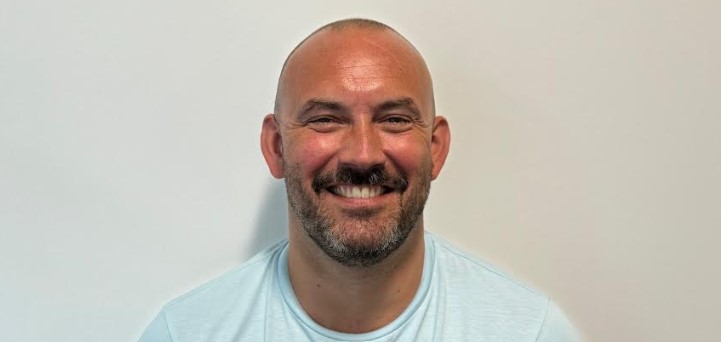Kicking off Pride Month, Ben Mizen, head of engagement and people development at OneFamily, speaks to Health & Protection about not feeling safe to come out at work early in his career, the importance of education about trans and non-binary people within society as a whole and how his employer’s LGBTQ+ network has helped colleagues understand lived experience to learn and adapt to make sure people feel comfortable to be who they are at work.
What have been your own experiences with regard to attitudes towards LGBTQ+ communities in the sector?
I came to Brighton in 1999 after university and at that time I was not certain of my sexuality.
Being in Brighton, I started to meet lots of people within the LGBTQ+ community, which gave me a safe space and helped me understand my sexuality. After some time questioning whether I was bisexual, I came out two years later as a gay man.
It was tough and it took time for me to become comfortable with who I am.
At the time, attitudes were changing, but they were not what they are today and this made it more challenging.
Although in my personal life I was surrounding myself with open-minded people within the LGBTQ+ community, it didn’t feel safe to come out at work at first. I was very private about my personal life and felt fear about people knowing, so I only told a select few colleagues who I trusted.
Over the years, attitudes started to change and there was improved visibility of the LGBTQ+ community, which helped my own acceptance of being gay.
This allowed me to build my confidence and I now take pride in who I am, my relationships with my friends and my relationship with my partner of 13 years.
This took time, but it was helped by a number of strong and visible individuals, both inside and outside of work, which allowed me to feel more comfortable and confident in myself.
How have attitudes evolved in the sector?
Attitudes have definitely changed for the better and allyship is much more present within the industry.
At OneFamily, we have strong support from the top – our CEO is a big LGBTQ+ ally – and this sets the tone of openness and acceptance across the rest of the business.
Over the years, attitudes have shifted from being tolerant, to accepting, to celebrating people. I have seen what a positive difference this makes to the lives of people within the LGBTQ+ community, as it helps them feel they can be their full selves at work.
We set up the LGBTQ+ network within OneFamily last year, with the purpose of improving education, visibility and the celebration of diversity.
The network has created a really positive community of people that meet regularly to discuss their experiences at work, to understand what they enjoy about working at OneFamily and to identify steps that can be taken to improve education and visibility.
Many of our LGBTQ+ colleagues have shared their personal stories in our internal comms networks, and I feel proud to work for a company where staff feel comfortable and happy to do so.
We’ve had a really positive reaction to the LGBTQ+ network from people across all levels of the organisation.
This isn’t a tick-box exercise – it is built from a genuine desire to understand lived experience, learn and adapt to make sure people feel comfortable to be who they are at work.
Do you feel encouraged and enabled to bring your whole self to work?
Very much so. OneFamily is incredibly honest and open and actively encourages people to bring their whole selves to work.
I am a proud gay man and I feel valued and appreciated at work. It’s a very psychologically safe environment to be in.
We recently ran a survey to understand how colleagues feel about inclusion and belonging at OneFamily and, particularly as I work within the people services team, I was pleased to see staff feel safe and supported at work.
We also launched our internal ‘Invested’ programme last year to make sure all colleagues feel OneFamily is invested in their wellbeing, development and future.
A big part of this is making sure they feel seen and heard and everyone knows their opinions are listened to and respected.
I personally already feel able to bring my whole self to work and I’m proud to work for an organisation that encourages diversity and focuses on creating such a collaborative and inclusive culture.
What is the sector doing well and where does it need to up its game?
We have made huge strides over the years within the industry, and I’ve seen and experienced really positive changes since I first started working in the financial sector.
There are so many reasons why it’s vital to have an inclusive culture as it supports the wellbeing of our staff.
If our colleagues feel happy and able to show up as their authentic selves, we provide a better service to our customers.
In terms of where the sector needs to up its game, I think there can always be more education, and this is where the focus needs to be.
We’ve come a long way in the understanding and celebration of gay rights, but we still need to focus on our trans and non-binary people within society as a whole.
This is where education is vital and it needs to be accessible to everyone, across generations and at all levels.
The best way to do this is through storytelling of people’s real, lived experiences. We must keep giving platforms to LGBTQ+ people and giving space for others to listen and learn about how to be an ally.






